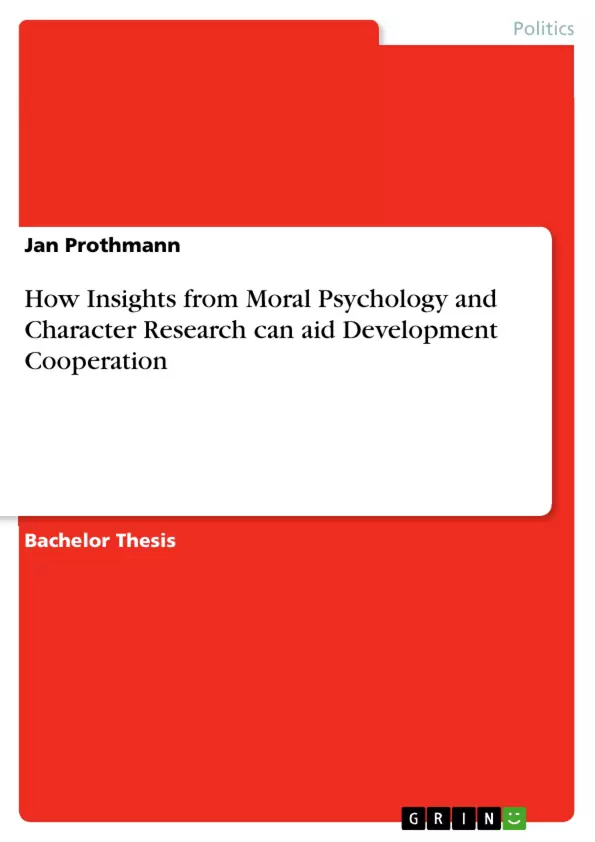This thesis explores the integration of insights from moral psychology and moral character research into Official Development Aid (ODA) allocation criteria, arguing for its potential to enhance the moral foundations of development cooperation and improve aid effectiveness. Despite the widespread acknowledgment of geopolitical interests and the evolution of aid modalities, the discussion on aid allocation has largely overlooked moral considerations. By assuming a shift towards non-political allocation mechanisms and a genuine interest in aid effectiveness among donor governments, the thesis aims to substantiate the proposition that incorporating moral psychology and character research can strengthen the ethical basis of development cooperation. Through theoretical and practical research, the subsequent chapters endeavor to provide support for this proposition. Official Development Aid (ODA) allocation of bi- and multilateral donors should take into account insights from research in moral psychology and moral character. It is argued that among the reasons for doing so are strengthened moral foundations of development cooperation and increased aid effectiveness. Reflections on this topic are relevant, given that the link between aid recipient's moral outlooks and aid allocation criteria has received practically no attention in theorizing development cooperation, while voices critical towards this field of work have, if anything, increased considerably in recent years.
Inhaltsverzeichnis (Table of Contents)
- Introduction
- Central Part
- Official Development Aid, German Efforts and Criteria
- Moral Psychology and Moral Character - what is it about
- The case against Moral Psychology and Character in ODA Allocation...
- The case for Moral Psychology and Character in ODA Allocation
- Conclusion........
Zielsetzung und Themenschwerpunkte (Objectives and Key Themes)
This thesis argues that insights from moral psychology and moral character research should be incorporated into the allocation criteria of Official Development Aid (ODA). The central aim is to demonstrate that this integration would strengthen the moral foundations of development cooperation and enhance aid effectiveness. The thesis critically examines the current state of development cooperation, particularly its allocation mechanisms, and explores the potential impact of incorporating moral psychology and moral character considerations.
- The role of moral psychology and moral character in development cooperation.
- The impact of moral considerations on aid allocation criteria.
- The ethical foundations of development cooperation.
- The potential to improve aid effectiveness through moral considerations.
- The influence of political and economic factors on aid allocation.
Zusammenfassung der Kapitel (Chapter Summaries)
- Introduction: This chapter provides an overview of the thesis's central argument and introduces the key issues surrounding development cooperation, highlighting the lack of attention to moral considerations in aid allocation and the growing criticisms of development cooperation practices.
- Official Development Aid, German Efforts and Criteria: This chapter delves into the definition and practices of ODA, focusing on the German government's commitment to ODA and the existing allocation criteria. It examines the general principles, thematic areas, and regional focus of German development cooperation.
Schlüsselwörter (Keywords)
This dissertation examines the integration of moral psychology and moral character research into development cooperation, specifically within the context of Official Development Aid (ODA) allocation criteria. The main focus is on exploring the potential to enhance aid effectiveness and strengthen the moral foundations of development cooperation by incorporating insights from these fields.
- Citation du texte
- Jan Prothmann (Auteur), 2019, How Insights from Moral Psychology and Character Research can aid Development Cooperation, Munich, GRIN Verlag, https://www.grin.com/document/1466029



